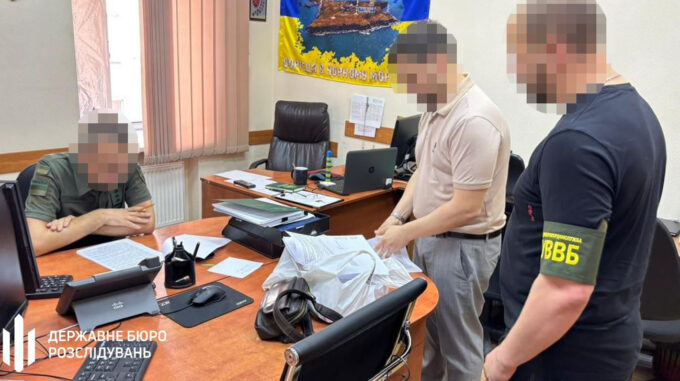Employees of the State Bureau of Investigation exposed a corruption scheme in the military sector, which could have had serious consequences for the country’s security

According to the press service of the SBI, Colonel of the Territorial Border Guard Service Bohdan Humeniuk attempted to avoid being sent to the combat zone by bribing the head of the military medical commission at one of the medical institutions of the State Border Guard Service of Ukraine. According to investigative data, the high-ranking officer transferred a monetary reward of $2,000 USD through a mediator — a nurse of the military unit. The goal of this illegal operation was to have the medical commission classify the soldier's condition as a mild illness, allowing him to avoid deployment to the combat zone while not resulting in outright discharge from the Armed Forces of Ukraine. Also read: How corruption undermines Ukraine’s defense capabilities and what law enforcement is doing to fight it Humeniuk’s detention took place within the framework of the criminal investigation. During the investigative measures, the colonel was served a suspicion for abuse of power and bribery. The nurse, acting as a mediator, was suspected of aiding in providing illegal benefits. If found guilty, they face up to eight years in prison with confiscation of property. What makes this case particularly notable is that as early as May 2025, the head of the medical commission had already been detained on suspicion of similar illegal activities. At that time, law enforcement officers seized a substantial amount of medical documents and false conclusions regarding servicemen within a police facility. This indicates the scale and systemic nature of the corruption scheme within this structure. Currently, investigators are focusing on locating and identifying other members of the medical commission who may have been involved in corrupt schemes within military medicine. Operatives are working to uncover possible connections and establish all circumstances of the committed crimes, as such activities not only violate the law but also undermine trust in military medical commissions and threaten the security of military units. This case once again underscores the need to strengthen oversight and fight corruption within the system of state defense agencies. It is crucial that the judiciary and law enforcement persist in their efforts and ensure that such crimes do not go unpunished, as their disclosure directly impacts the safety and stability of the Ukrainian army.

